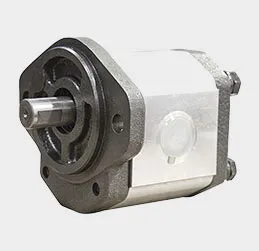Precision Die Casting Techniques for High-Quality Metal Component Production and Design
Precision Die Casting The Pinnacle of Manufacturing Excellence
In the realm of manufacturing, precision die casting has carved out a significant niche due to its ability to produce highly accurate and complex shapes with minimal waste. This advanced process has revolutionized the production of various metal components, catering to industries ranging from automotive and aerospace to electronics and consumer goods. With its blend of efficiency, quality, and cost-effectiveness, precision die casting is a crucial technology that continues to evolve.
At its core, precision die casting involves forcing molten metal into a mold cavity under high pressure. This process is typically employed with materials such as aluminum, zinc, and magnesium, known for their lightweight yet durable properties. The molds used in precision die casting are meticulously designed and manufactured to extremely tight tolerances, often within 0.005 inches, ensuring that the final product meets the exact specifications required by engineers and manufacturers.
One of the most significant advantages of precision die casting is the ability to produce intricate geometries that would be nearly impossible to achieve through traditional manufacturing methods. The process allows for complex shapes with thin walls and detailed features, which is particularly beneficial for industries like aerospace, where weight reduction is paramount. By utilizing precision die casting, manufacturers can create lightweight components that do not sacrifice strength or durability.
Moreover, the surface finish of components produced through precision die casting can often be superior to that of parts made with other methods. The high-pressure injection of molten metal into the mold ensures that there are fewer surface imperfections, leading to a refined, smooth finish that often requires little to no additional treatment. This quality reduces the need for extensive machining or surface treatments, further streamlining the production process and saving time and costs.
precision die cast

The production efficiency of precision die casting is another factor that makes it an attractive option for manufacturers. The cycle time for casting components can be rapid, sometimes taking only seconds. This quick turnaround enables high-volume production, making precision die casting suitable for large-scale manufacturing operations. As a result, businesses can meet large orders without compromising quality, which is a critical aspect in competitive markets.
In addition to its manufacturing advantages, precision die casting is also seen as an environmentally friendly process. The method generates minimal waste, as excess metal from the casting can often be recycled and reused in subsequent operations. This aspect is becoming increasingly important as industries strive to adopt more sustainable practices and reduce their carbon footprint. By implementing precision die casting, companies can produce high-quality components while minimizing environmental impact.
The versatility of precision die casting also cannot be overlooked. It is applicable across a wide range of industries and products, from automotive parts like engine blocks and transmission cases to electronic housings and even intricate decorative items. This capability to serve diverse sectors makes precision die casting a vital technology in the modern manufacturing landscape.
As technology advances, so too does precision die casting. The integration of computer-aided design (CAD) and computer-aided manufacturing (CAM) systems allows for even greater precision in mold design and production. Innovations such as 3D modeling and simulation software enable engineers to predict and rectify potential issues before the production process begins, significantly reducing the likelihood of defects and enhancing overall efficiency.
In conclusion, precision die casting stands out as a cornerstone of modern manufacturing, providing businesses with the tools to produce high-quality, complex metal components efficiently and sustainably. Its ability to marry precision with productivity makes it a go-to method for manufacturers across various industries. As technologies continue to evolve, we can expect precision die casting to adapt, ensuring it remains at the forefront of manufacturing excellence. Whether you are in the automotive industry seeking lightweight components or in electronics needing intricate housings, precision die casting offers a reliable solution to meet the challenges of modern production.
-
Precision Sheet Metal Stamping Manufacturer | Fast & ReliableNewsAug.01,2025
-
OEM Sand Cast Pump Valve Fittings - Baoding Hairun Machinery And Equipment Trading Co., Ltd.NewsAug.01,2025
-
Custom OEM Impellers | High Efficiency & PrecisionNewsAug.01,2025
-
OEM Sand Cast Pump Valve Fittings - Baoding Hairun Machinery | Customization, Quality AssuranceNewsAug.01,2025
-
OEM Sand Cast Pump Valve Fittings - Baoding Hairun Machinery And Equipment Trading Co., Ltd.NewsAug.01,2025
-
OEM Sand Cast Pump Valve Fittings - Baoding Hairun Machinery And Equipment Trading Co., Ltd.NewsJul.31,2025















